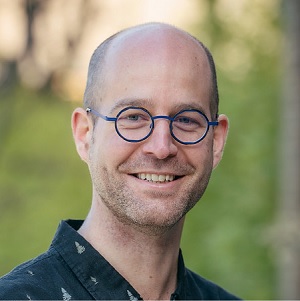Digging Deep on Resiliency Challenges

Assistant Professor Dr. Jean-Thomas Cornelis spends a lot of time getting his hands dirty. But when your research focuses on understanding the intricate micro-scale soil processes that underpin macrosized ecosystems, grubby fingernails at the end of the day are a standard occupational hazard.
The principal investigator in the SoilRes3 Lab—the ‘3’ refers to soil Resistance, Resilience and Restoration—Dr. Cornelis’s work is deeply rooted in key issues of resiliency. “An ecosystem that is balanced in all its terms is a critical aim—and resiliency is the capacity to restore and maintain that balance,” asserts the Belgium-born pedologist and biogeochemist who founded his lab in
2021.
Since launching, his team has been actively engaged in three main areas of research: soil-plant feedbacks; energy and nutrient cycling; and land-people relationships. The lab’s process-based approach has included exploring the sensitivity to climate change of soil processes controlling nutrient cycles, as well as the responses of soils and ecosystems to ancestral Indigenous land stewardship.
The human factor is a key feature in Dr. Cornelis’s work, incorporating an invaluable understanding of the cultural context of soil usage—in particular, the relationships between people and the land they work on. “Since the green revolution, soil has traditionally been regarded like a kind of black box that simply delivers our food supply,” he says. “But by researching soil, land and people together, we are trying to understand processes in a deeper and more dynamic way.”

Exemplifying that approach, the lab has conducted an array of hands-on field studies in different parts of the world, uncovering diverse land-people approaches from Europe to Africa and beyond. A fascinating recent project in Burkina Faso, for example, looked at biochar as a tool for nutrient recycling, collaborating with local smallholders to test the value of reusing discarded cotton stalks in crop rotation systems.
In fact, collaboration has been an enduring quality of Dr. Cornelis’s work and he has frequently partnered with researchers beyond his own lab—from functional ecologists to plant physiologists and more. “Increasing our collaboration deepens our approaches to issues of resiliency,” he says, adding that his latest multidisciplinary research proposal aims to test the idea that putting crops under slight nutrient limitation could maximize the ecological benefits associated with more resilient crops while also contributing to global decarbonization.
Tagged with: 2024, Indigenous, Soil Science
